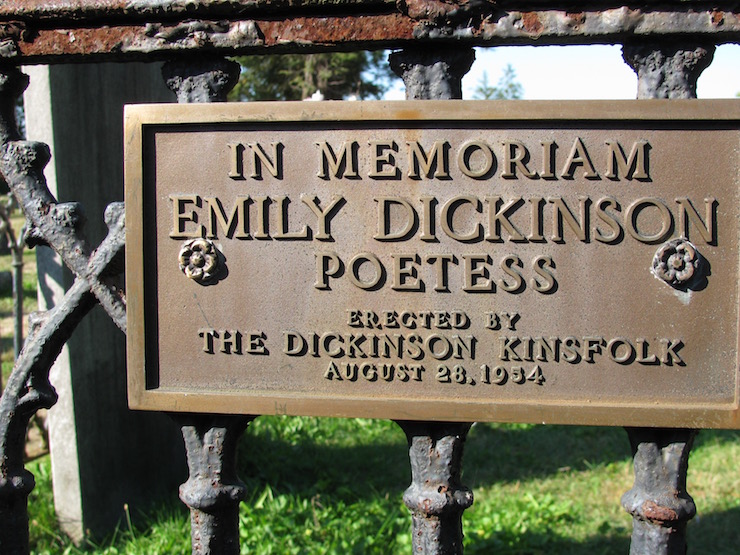< Return to Emily Dickinson Poems
XI. My Rose
MY ROSE.
Pigmy seraphs gone astray,
Velvet people from Vevay,
Belles from some lost summer day,
Bees’ exclusive coterie.
Paris could not lay the fold
Belted down with emerald;
Venice could not show a cheek
Of a tint so lustrous meek.
Never such an ambuscade
As of brier and leaf displayed
For my little damask maid.
I had rather wear her grace
Than an earl’s distinguished face;
I had rather dwell like her
Than be Duke of Exeter
Royalty enough for me
To subdue the bumble-bee!
-Emily Dickinson
Enjoy Artistic Representations of “My Rose” by Emily Dickinson
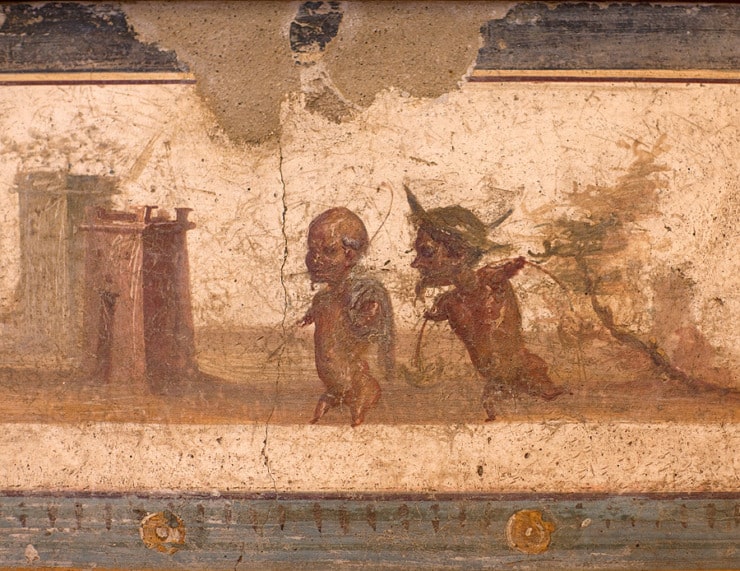
Roman fresco called the Frieze of the Pygmies in the Villa di Arianna in Stabiae.
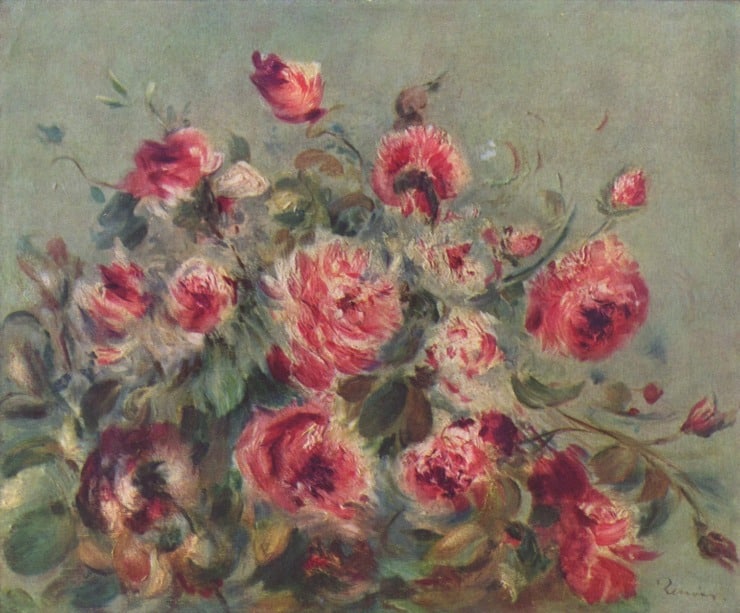
Roses from Vargemont by Pierre-Auguste Renoir, 1885.
Listen to this Reading of “My Rose”
Listen to this Musical Interpretation of “My Rose” by Emily Dickinson
About Emily Dickinson
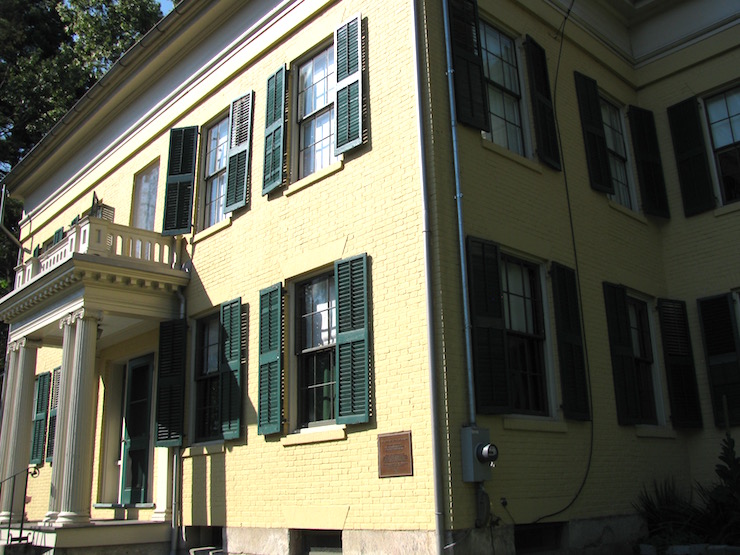
Emily Dickinson estate in Amherst Massachusetts
Emily Dickinson was born in Amherst, MA, in 1830, the daughter of state and federal politician Edward Dickinson. A prolific poet, Dickinson was known to draft poems on the backs of envelopes and chocolate wrappers. Nearly 1800 of her poems were discovered by her family following her death, many in 40 handbound volumes she had sewn together, written in her own hand with her famously unorthodox punctuation.
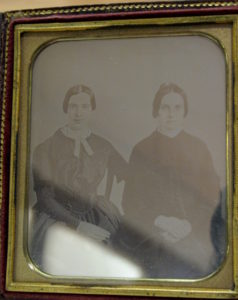
Emily Dickinson & Susan Gilbert
The enigmatic poet is remembered as a recluse, rarely leaving the Dickinson estate. While she did receive callers at her home, conversations were often held from opposite sides of a closed door.
She lived with her sister, Lavinia, while her brother Austin and his wife, Susan Gilbert, lived down a narrow path on the property. Her writing reflects profound loneliness as well as a deep capacity for love and affection, much of which is believed to have been shared with Gilbert.
Her first collection of poems, Poems by Emily Dickinson, was published four years after her death, with Poems: Second Series and Poems: Third Series following in the next several years.
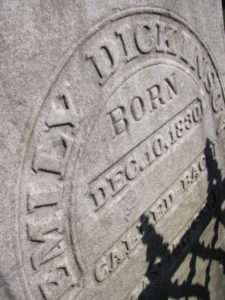
“Called Back”
Like Walt Whitman (who she reportedly never read), she is considered one of the most influential poets in the emergence of a distinctly American poetic voice.
She was born on December 10, 1830, and today visitors to Emily Dickinson’s grave can witness a lasting image of her perspective on life. The etching on her stone marking the date of her death—May 15, 1886—bears the words “Called Back.”
< Return to Emily Dickinson Poems
